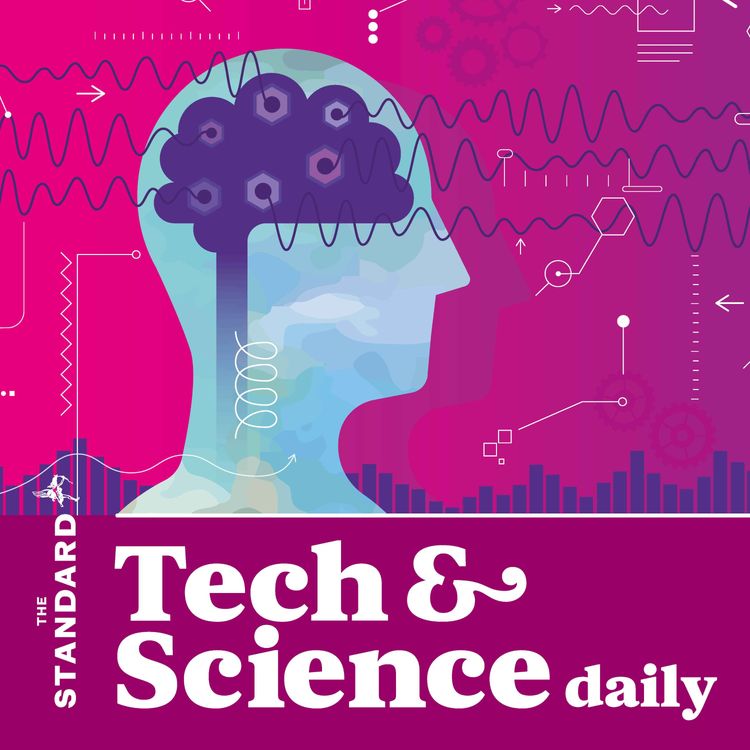Share

Tech and Science Daily | The Standard
On the road with Malawi’s Covid vaccination vans
Season 1
•
Ros Russell, the Editor of the Evening Standard’s Vaccine for the World project, takes over the Tech and Science Daily this week, to bring you the people behind the scenes tackling Covid-19.
With a fourth Covid wave around the corner, Malawi has stepped up its mobile vaccination campaigns.
Today we’re joined by Charles Pensulo, a journalist based in the city of Blantyre in Malawi.
In an effort to increase the uptake of vaccines, Malawian health workers are taking jabs out to communities. Charles has followed one of the minibuses carrying doses of the AstraZeneca vaccine.
He updates us on Malawi’s vaccine rollout and why the country is struggling in the face of the Omicron variant.
More episodes
View all episodes

TfL ad banned, UK’s 48-hour takedown rule, China’s open-source AI surge, Avowed update
06:13||Season 1TfL gets an advert banned by the ASA for reinforcing a harmful stereotype, while the UK moves to force platforms to remove abusive intimate images within 48 hours — or face serious penalties. After the break, we hit the global AI acceleration story, and a proper gaming palate-cleanser with a big Avowed update. More on all of it at standard.co.uk — and follow Tech and Science Daily from The Standard so you’re never the last to know.
TfL clamps down on pedicabs, Bristol’s sensor shoe, Microsoft’s 10,000-year glass storage, Call of Duty ad banned
04:37||Season 1London finally starts putting the brakes on pedicab chaos — licences, checks, and fare caps that might save tourists from heartbreak and the rest of us from the noise. Outside the M25, a Bristol engineer builds a sensor-packed insole designed to spot dodgy gait changes before they turn into nasty falls. Then it’s full sci-fi: Microsoft shows off laser-written glass storage that could keep data safe for 10,000 years. In gaming, the UK ad watchdog bans a Call of Duty: Black Ops 7 advert for crossing the line. For more, head to standard.co.uk — and follow for your weekday briefing.
Waymo vs London black cabs, Discord age checks go global, and a Majorana quantum breakthrough
07:50||Season 1Waymo’s robotaxis are already causing aggro by plugging into black-cab-only charging bays, the Tube gets hit with “SMS blaster” scam tech, and the UK tells businesses to “lock the door” on cyber criminals. Plus, a major quantum result finally makes elusive Majorana qubits readable in real time, and Discord’s teen-by-default settings roll out globally with age checks on the horizon. For more head to standard.co.uk — and follow the show so your commute stays informed
Psychedelic depression breakthrough in London, Chrome zero-day patch, Artemis II rehearsal update, and a John Wick game reveal
05:33||Season 1Imperial researchers report early-but-serious results for a psychedelic-assisted depression treatment, while UK scientists kick off about research funding uncertainty. After the break, it’s the “update your browser right now” Chrome zero-day, a fresh Artemis II countdown rehearsal date from NASA, and in gaming, John Wick steps out in a suit and into an untitled new action game. Plus: Apple tees up a 4 March event, so your next phone upgrade might want to calm down for a minute. More on all of it at standard.co.uk — and follow for your weekday briefing.
London’s First Thames Bathing Spot, UK Targets AI Chatbots, and MIT’s “Computing With Heat”
06:29||Season 1The government’s proposing a first-ever official Thames bathing spot at Ham and Kingston — which is either progress or the start of a new kind of group chat argument. Then: the UK moves to pull AI chatbots into the Online Safety net, with child-safety rules catching up to fast-moving tech. Also, Oxford researchers find public support for health-data sharing for AI is real — but only if the safeguards are, too. After the break, MIT shows off computing that uses waste heat instead of electricity, Google warns the EU about building “tech sovereignty” walls, and in gaming, 007 First Light drops a new story trailer. We finish with Sony’s new WF-1000XM6 earbuds — priced like a Zone 1 lunch, but aimed straight at your commute. For more on all of it, head to standard.co.uk
Smart clothing “button” breakthrough in London, UK clampdown on broadband bill hikes, Silent Hills Transmission and Microsoft rushes zero-day fixes
07:22||Season 1King’s College London says loose fabric can track movement better than skin-tight sensors, meaning your next health tracker might be… a shirt button. Then we’ve got the UK pushing telecoms giants to bin surprise mid-contract price hikes (about time), plus Microsoft scrambling to patch Windows and Office bugs that hackers are already exploiting. After that: China tests new Moon-mission hardware, and Silent Hill fans get a late-night update. More on all of it at standard.co.uk — and hit follow so you don’t miss the next one!
TfL’s 2026 upgrade plan, Instagram in court over “endless scroll”, and Samsung Unpacked confirmed
05:32||Season 1TfL’s talking upgrades for 2026 — the sort that decides whether your commute is “fine” or “character-building”. Over in the US, Instagram’s “endless scroll” is being argued over in court, while Samsung confirms Galaxy Unpacked for 25 February, and Steam quietly tries to stop Early Access from promising the moon. More at standard.co.uk.
TfL’s new bus shelters, Apple & Google app store shake-up, and gene-edited moths, plus Helldivers 2 update
06:01||Season 1TfL starts trialling new bus shelter designs across the city — brighter, safer, and hopefully less bleak in the rain. Then the UK competition regulator gets Apple and Google to commit to fairer app store rules, before we head to Exeter where scientists are gene-editing wax moths to speed up infection research and tackle antimicrobial resistance. After the break: an ancient fossil find that rewrites early plant-eaters on land, a fresh Helldivers 2 update, and a quick word for iPhone owners if iOS is acting up. More at standard.co.uk.
PlayStation’s hour-long State of Play, UK universities warned on foreign interference, and the botnet lurking in your living room
05:52||Season 1Today on Tech and Science Daily from The Standard: the UK sets out new measures aimed at protecting universities from foreign interference, as concerns grow about pressure on researchers and sensitive collaboration. Plus, a record-setting DDoS attack is linked to the AISURU/Kimwolf botnet — a reminder that insecure everyday devices can end up powering serious cyber disruption. And in gaming, Sony confirms a 60+ minute State of Play landing this week, with major updates expected for the PS5 slate. We also look to science, with new research pointing to an empty lava tube beneath Venus, and a fresh method for measuring energy loss in nanoscale systems that could help shape future electronics.